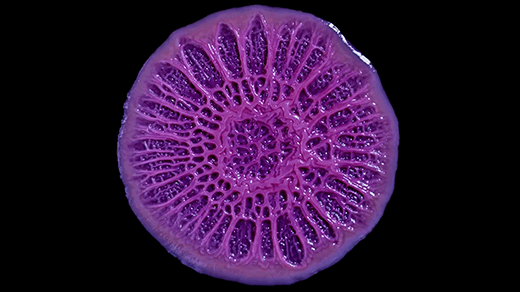Latest Articles
How a Biofilm’s Strange Shape Emerges From Cellular Geometry
Micro decisions can have macro consequences. A soft matter physicist reveals how interactions within simple cellular collectives can lead to emergent physical traits.
Evolution: Fast or Slow? Lizards Help Resolve a Paradox.
Why does natural selection appear to happen slowly on long timescales and quickly on short ones? A multigenerational study of four lizard species addresses biology’s “paradox of stasis.”
How Supergenes Fuel Evolution Despite Harmful Mutations
Supergenes that lock inherited traits together are widespread in nature. Recent work shows that their blend of genetic benefits and risks for species can be complex.
Ocean Bacteria Reveal an Unexpected Multicellular Form
Marine bacteria normally seen as single cells join together as a “microscopic snow globe” to consume bulky floating carbohydrates.
In Sexy Worms, Inheritance Beyond Genes Can Help Evolution
Traits from RNA molecules passed between multiple generations of worms can work with genetic changes to influence future evolution.
Evolution ‘Landscapes’ Predict What’s Next for COVID Virus
Studies that map the adaptive value of viral mutations hint at how the COVID-19 pandemic might progress next.
Wildfires of Varying Intensity Can Be Good for Biodiversity
The spate of furious wildfires around the world during the past decade has revealed to ecologists how much biodiversity and “pyrodiversity” go hand in hand.
At the Dawn of Life, Heat May Have Driven Cell Division
A mathematical model shows how a thermodynamic mechanism could have made protocells split in two.
Karen Miga Fills In the Missing Pieces of Our Genome
Driven by her fascination with highly repetitive, hard-to-read parts of our DNA, Karen Miga led a coalition of researchers to finish sequencing the human genome after almost two decades.









